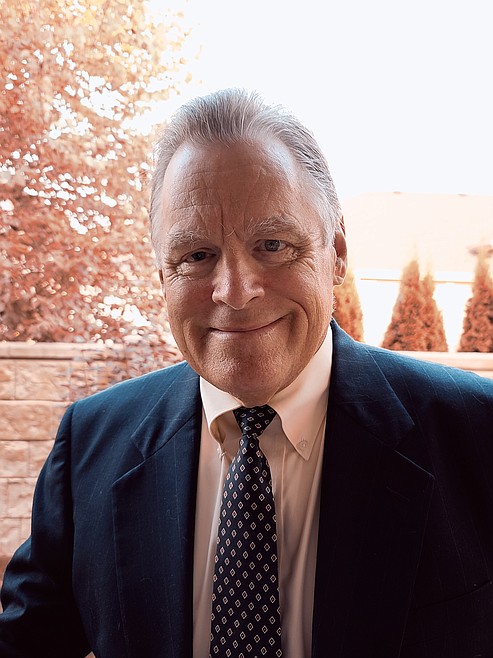OPINION: Children’s Congress set to deliver timely message
Imagine a Congress that accomplishes something … one that isn’t bogged down by gridlock and political posturing. Now imagine, if you will, a lobbying effort that doesn’t involve campaign contributions.
That kind of Congress does exist through the Juvenile Diabetes Research Foundation’s “Children’s Congress.” It started with a 9-year-old boy from Massachusetts named Tommy Solo who one day asked his mother, “Why can’t kids go to Washington and tell their representatives about what it is like to have type 1 diabetes?”
From there, the Children’s Congress was started in 1999 and has been held biannually since then, with more than 1,000 kids serving as delegates.
Idaho’s representative this year is Charlotte Swenson of Boise, a delightful 12-year-old girl who on July 9-11 will join a group of 160 delegates between the ages of four and 17. There are things that Congress can do: One is to renew funding for the Special Diabetes Program that is scheduled to expire at the end of September; the second is to make insulin affordable for everyone.
That’s heavy stuff for a girl who will be taking her first airplane ride, but Charlotte plans to be well prepared to speak with Idaho’s delegation. The Special Diabetes Program costs $150 million a year, which is a bargain considering the research advances made toward prevention and treatment. A second item on her “ask” list is making insulin affordable — and not those with comprehensive insurance coverage. Insulin affordability, a leading political football in congressional politics, takes on a different light with someone such as Charlotte making the pitch.
“I would not be here today without insulin,” she said softly to my question.
As for the Special Diabetes Program, “Research programs and advances in technology have made my life so much better,” she wrote in a letter to JDRF. “I can sleep better, and I don’t have to test my blood sugar every minute of the day. I am kept safer by knowing what my blood sugar is doing and can prevent any lows and highs. I am much healthier and can live more of a normal life because of my glucose monitor and my new pump.”
Charlotte, as with any other 12-year-old, has hopes for the future, including going to Harvard Law School, getting married and having a family, and helping find a cure for diabetes — all of which are within reach. But she doesn’t want to be part of the “lucky” few that have found a way to pay for insulin at a reduced cost. As Charlotte’s mother, Dyanna (a local JDRF advocate) sees it, there’s no reason why the cost should be so high.
“The ingredients for insulin haven’t changed,” she said. “It’s not a great concern for us, because we can get it, but I can’t imagine what it would be like not having insurance.”
Charlotte is making the trip with her mom and dad (Matthew) and they will have a whirlwind of activities. On the “business” side, there will be leadership and character-building programming, interactions with type 1 diabetes role models and attendance at a Senate hearing, where some kids will have an opportunity to share their personal stories.
Looking at Charlotte, you’d never know she had type 1 diabetes — and her parents, who have six kids, had no clue until she was 5 years old. She had stopped playing like normal and was wanting to lie down and watch TV instead. She was hungry all the time, but losing weight. Eventually, she was diagnosed with Type 1 diabetes, and this little girl found herself in a world where she was taking insulin shots and carefully monitoring blood-sugar levels.
Now, she is working to help others — and taking her story to those who can help make it happen.
Charlotte says it perfectly in her letter. “Diabetes is a hard thing to live with. No child should have an aching headache like I do when I’m high or feel like gravity is pushing down on you when you are low. Every child should be able to eat when they are hungry and sleep without worrying that they won’t wake up. Until they find a cure, kids with diabetes should be able to have as much of a normal life like other kids. We should be able to swim, dance, eat and run without having to worry about staying alive. Please support helping kids with Type 1 live happier healthier lives, and help us eventually find a cure.”
There is no hope if those lines don’t warm the hearts of grizzled politicians.
• • •
Chuck Malloy, a longtime Idaho journalist and Silver Valley native, is a columnist with Idaho Politics Weekly. He may be reached at ctmalloy@outlook.com.



